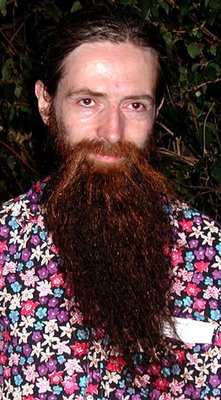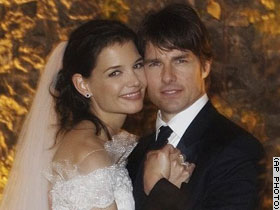 Aubrey de Grey
Aubrey de Grey- he has a lot of brains as well as beard :-)
(Photo credit-Kevin Perrott )
So, back to the 1,000 year life expectancy question… Good thing or bad thing?
The question was raised when I recently watched an episode of "Time", a series covering a range of issues around that overall subject and presented by the engaging Japanese American Michio Kaku.
This particular episode focused on our own mortality and how this affected our lives. In past ages the rich and famous would sometimes be painted holding a skull to remind them of their own transience and maybe keep their egos in check. These days the approach is a little different- plastic surgery, botox and if this all proves too much- therapy.
This was more philosophical. However, "here comes the science bit", as Jennifer Aniston used to say in shampoo ads. There is apparently no genetic reason why we have to die. Contrary to some earlier theories there is no "program" inside us that says we have to die at 60, 70 or 100. While mice only live a couple of years, parrots can live longer than humans and tortoises can live up to a couple of centuries.
Apart from accidents, war and disease the thing that gets most people in the end is simple "corrosion" or aging. Humans are very good at repairing themselves but this is not effective forever. Hence skin thickens, hair greys, bones thin etc etc.
The "good news" for the future is that need not be inevitable. The "corrosion" is all the effect of free radicals- damaging "bits" that escape from us reducing the effectiveness of our cells, both slowing them down or killing them. The effect of this ranges from the mild (wrinkled skin), the profoundly disabling (Alzheimer's), to the terminal (cancer).
However "a prophet" in the field of studying aging (bio gerontology) is a 43-year old Cambridge scientist called Aubrey de Grey. Mr. de Grey is nothing if unconventional (enormous beard, older wife, fond of a pint) but is also undoubtedly highly intelligent and knowledgeable in his field.
His basic premise is that aging is not inevitable. There is no overriding program that determines we will age and die. Rather there are a range of processes that our bodies suffer that result in corrosion and degeneration. These processes (Mr. de Grey summarises these under 7 distinct problems- see below) could all be either prevented or reversed.
De Grey also feels right is on his side as "aging" broadly kills two thirds of people or 100,000 people a day. So to cure aging would "save" 100,000 people a day.
Of course his theories are not without controversy. While no one alleges de Grey is in this for money, many simply believe that what he suggests cannot be done. All his opponents broadly see aging as bad but inevitable. Others have argued that even if he did succeed de Grey "would surely destroy us in attempting to preserve us" because living for such long periods would undermine what it means to be human.
Not being a scientist it was this argument that had most interest to me. I lack the knowledge to be able to comment on reversing damage to cells but I can take issue with the belief that to be human is to die at 70 or even 100.
I find such a belief patronising and analogous to "well-travelled" middle Englanders who take delight in pronouncing how long is appropriate in a particular holiday destination. Tell one of these "know-it-alls" you are going to Paris and they will say "Oh how lovely. Mind you, you wouldn't want more than a week there. You will have seen everything in a week". ("See everything in Paris in a week " I silently cry incredulously) These people will also advise on 2 week limits for a beach holiday (obviously Robinson Crusoe went wrong here) or a minimum period in relation to more far flung destinations like Australia ("Oh you must go for 3 weeks to make it worth while"). Such statements that come out as ex cathedra pronouncements rather than personal preferences put my back up and I snobbily tell them I once went to Chile for a 4 day visit.
Anyway, to return to life, I find statements that human life is limited to 100 years similar to a suburban philosopher saying "Life as a human being. 70 years is nice but you wouldn't want more than a 100. 110 is too much. Whatever next you'll be spending a fortnight in Rome!"
Aubery de Grey's science may be unproven but if he can do it, I would be up for it. To live 1,000 years would be a gift. Of course it would require flexible attitudes. Assuming you were born a 1,000 years ago you couldn't have got to 500 and say, "I'm afraid I will never be able to get on with anything except the quill pen and the scroll". Equally while you could keep your principles you would have to be tolerant of changing social attitudes. In one lifetime you would deal with the dark ages in your youth, Puritanism, enlightenment, Victorian values to our current relative pool.
Reskilling and education would also be an issue too. If you started as a sword-maker in your 20s, in your 980s you might have to earn your crust in a call centre (ghastly thought!).
All this brings home how mentally programmed we are to dying around "three score years and ten". If we were to live to 1,000 we would want our friends to live for similar lengths (well most of them anyway !) or it would prove difficult to make new batches of friends every 50 years or so.
Maybe the biggest obstacle to a successful 1,000 year life is our attitudes. By our 20s many of us think we know it all. In our current age especially there is a world weary cynicism, "we've seen it all before" attitude. It's not cool to be surprised, even amazed.
Well if Mr. de Grey is right I would like to think I would be happy to learn something completely new on my 383 rd birthday. When we fear age now, we think of decline and illness but if aging could be "cured" we would be as healthy at 650 as at 35.
The only thing that would scare me would be the thought of a few hundred years commuting on the train to Cannon Street Station, London. In fact isn't that a contradiction? If I can "only" hope to live for 70 years shouldn't I be doing something far more interesting as I'm nearly half way through already? Whereas if I was going to live for 1,000 years a mere 40 years on South Eastern trains wouldn't be such a big deal !
Maybe our expectations are too low. We expect our lives to be short (if not "nasty, short and brutish" as Hobbes wrote) so don't make enough effort. Whereas if we had 1000 years, we would surely plan to do something amazing?
Aubrey de Grey has created a vision which may or may not come to being. He married in his twenties a woman who was 20 years old than him. They are still together so maybe he has a vested interest in this theory. He hopes that this generation can "outrun death". By our 50's or 60's the damage to our cells can be reversed to enable us to live to 150. By then science should have advanced further to enable us to reach 300 and so on.
However for many of us maybe the biggest problem is not the coming of death but the loss of dreams and the lack of desire for new thoughts or new insights. If you think you know it all by 25 then of course the prospect of 975 further years may be a little dull. However if your attitude is open and you are interested in life then no period is really too long.
We don't know it all by 25. In fact I am certain I will never know it all. Until my last day, I hope I learn something new every day. For that reason, I would like all the time I can get. Healthy time of course rather than years ill in bed. However as Mr. de Grey's photo shows, no one is yet immune from aging ! So perhaps I had better not count on more than 70 years for now- until some clear evidence to the contrary. In which case time is running out..........
HOW TO CURE AGING !Below are Aubrey de Grey's 7 steps to curing aging:
1. The problem: Cell loss or atrophy
Mr. de Grey's solution: Develop stem cells to replace lost cells. Or use chemicals that stimulate the division of cells to produce new ones.
2. The problem: Cancer
Mr. de Grey's solution: Aggressive gene therapy will make it impossible for cancer cells to reproduce. Stem-cell therapy will prevent side effects.
3. The problem: Mitochondrial mutations
Mr. de Grey's solution: Mitochondria are the cell's power plants, and they house separate genes that are prone to harmful mutations that cause diseases. To prevent those problems, copy the critical mitochondrial genes and insert the copies in the cell's nucleus, where they will be better protected.
4. The problem: Unwanted cells (such as fat cells)
Mr. de Grey's solution: Possibly stimulate the immune system to kill unwanted cells.
5. The problem: Stiffening of proteins outside the cell
Mr. de Grey's solution: Proteins outside cells help support tissues, making arteries elastic and ligaments strong. But chemical reactions throughout life link those proteins and make them less mobile. Specific chemicals could break those links and allow the proteins to move more easily. One chemical is already in clinical trials, says Mr. de Grey.
6. The problem: "Junk" outside the cell
Mr. de Grey's solution: Plaques accumulate outside the cell and may lead to diseases such as Alzheimer's. Small molecules called beta-breakers may break these plaques down.
7. The problem: "Junk" inside the cell
Mr. de Grey's solution: As cells age, molecules can change in ways that make them stop working. Those structures can accumulate in cells and and eventually overwhelm them. Extra enzymes from bacteria could be given to cells to degrade the unwanted material.
More details can be found on his Web site:http://www.sens.org/AdGbio.htm





















